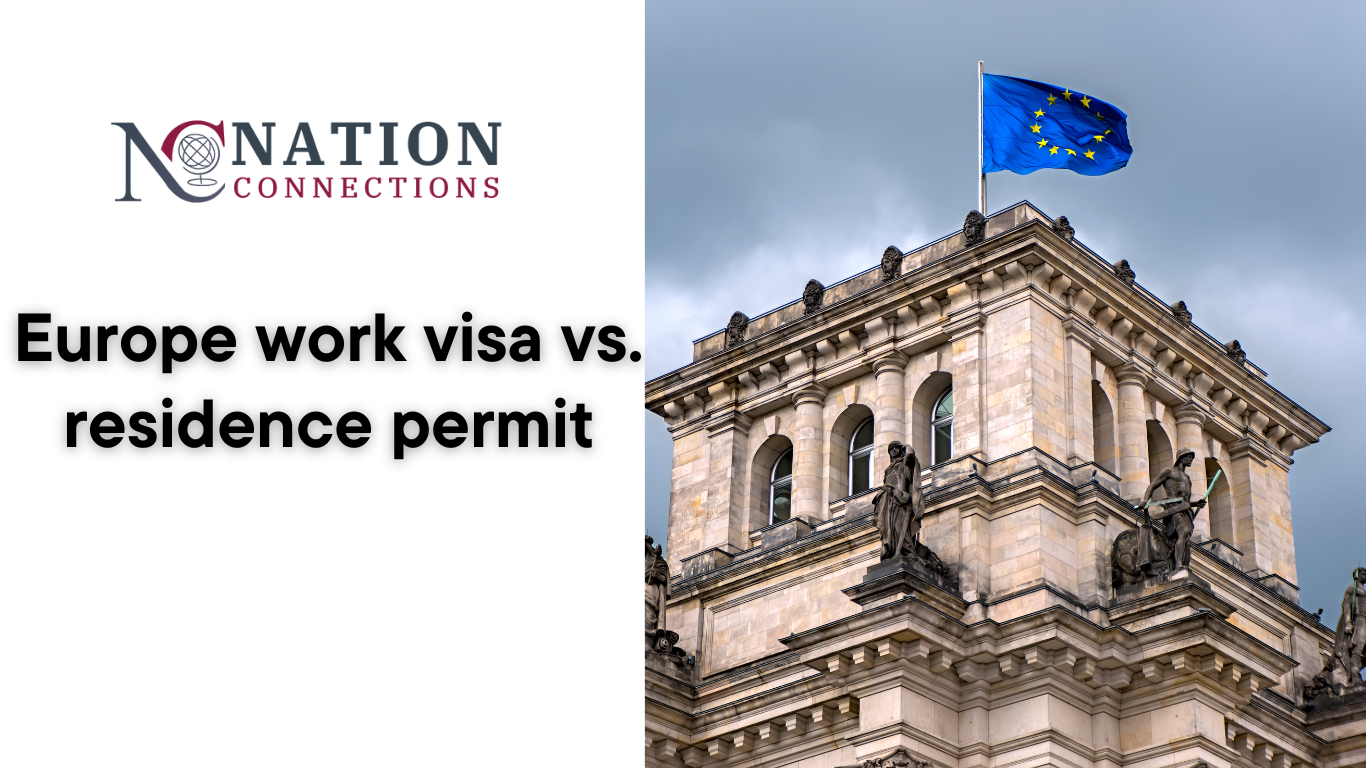When planning to live and work in Europe, two terms often come up—work visa and residence permit. While they may sound similar and are sometimes used interchangeably, they serve different legal purposes and are essential to understand if you’re moving to Europe for employment. Let’s break down the key differences, benefits, and how they work in various European countries.
A Europe work visa is an entry authorization that allows non-EU/EEA nationals to enter a European country with the intention of working there legally. You usually need to have a job offer from an employer before applying.
Key Features of a Work Visa:
Issued before entering the country
Often valid for a limited period (1-2 years)
Employer-specific (linked to the job offer)
May not allow for family reunification automatically
A residence permit is a document issued after arrival that allows you to live in a country for a specified period. While it can include work rights, its main function is to legalize your stay.
Types of Residence Permits:
Temporary Residence Permit (for short stays)
Long-term Residence Permit (usually after 5 years)
Permanent Residence Permit (granted after fulfilling certain conditions)
| Criteria | Work Visa | Residence Permit |
|---|---|---|
| Purpose | Entry for work | Legal stay in country |
| Issued by | Embassy/Consulate in your home country | Immigration authority within the country |
| Job Requirement | Job offer required | May or may not require employment |
| Duration | Short-term (1–2 years) | Short to long-term, renewable |
| Family Reunification | Not always included | Often allows family to join |
| Transition to Permanent | Not directly | Leads to permanent residency after few years |
Yes—in most European countries, you need both. A work visa gets you in, and the residence permit keeps you there legally.
Example:
In Germany, you enter with a work visa and then register and apply for a residence permit.
In Sweden, you may apply for both in a single application.
Work Visa: Needed to enter the country for employment
Residence Permit: Applied after arrival; renewable and may lead to permanent residency
Offers combined long-stay visa (VLS-TS) that acts as a residence permit
Must validate online after arrival
Highly Skilled Migrant Scheme combines both in one process
Employer usually applies on your behalf
Work visa and residence permit are submitted together in one process
Must have job offer before applying
Separate application: first get a visa, then residence permit within 30 days
Residence card is known as TIE
This depends on:
Your qualifications
The demand for your profession
The country’s immigration policy
Skilled professionals (like IT experts, engineers, doctors) have smoother access to work visas which then lead to residence permits.
Not always. Only certain types of residence permits (like those issued for work, family reunification, or studies with work rights) allow employment.
Important: Holding a student or tourist residence permit does not automatically grant work rights.
Work Visa = Entry
Residence Permit = Stay
You usually need both, but in some countries, the process is unified
Each European country has its own rules, but EU directives guide many of them
Can I switch from a work visa to a residence permit in Europe?
Yes, most European countries require this transition after arrival.
Is a residence permit enough to work in Europe?
Only if the permit includes work rights; otherwise, a separate work permit may be needed.
How long is a residence permit valid?
Typically 1–2 years, renewable. Permanent residence usually after 5 years.
Do EU Blue Card holders need a separate residence permit?
No, the EU Blue Card acts as both a work and residence permit in many countries.
Can family members join me on my work visa?
Depends on the country; in most cases, the residence permit stage allows family reunification.
What happens if my job ends while on a work visa?
You may need to find a new job quickly or risk losing your residence status.
Understanding the difference between a Europe work visa and a residence permit is crucial for anyone aiming to live and work in Europe. While the visa gets your foot in the door, the residence permit ensures you stay there legally and possibly long-term. Plan ahead, stay informed, and ensure your documents are in order to enjoy a smooth transition into European life.




